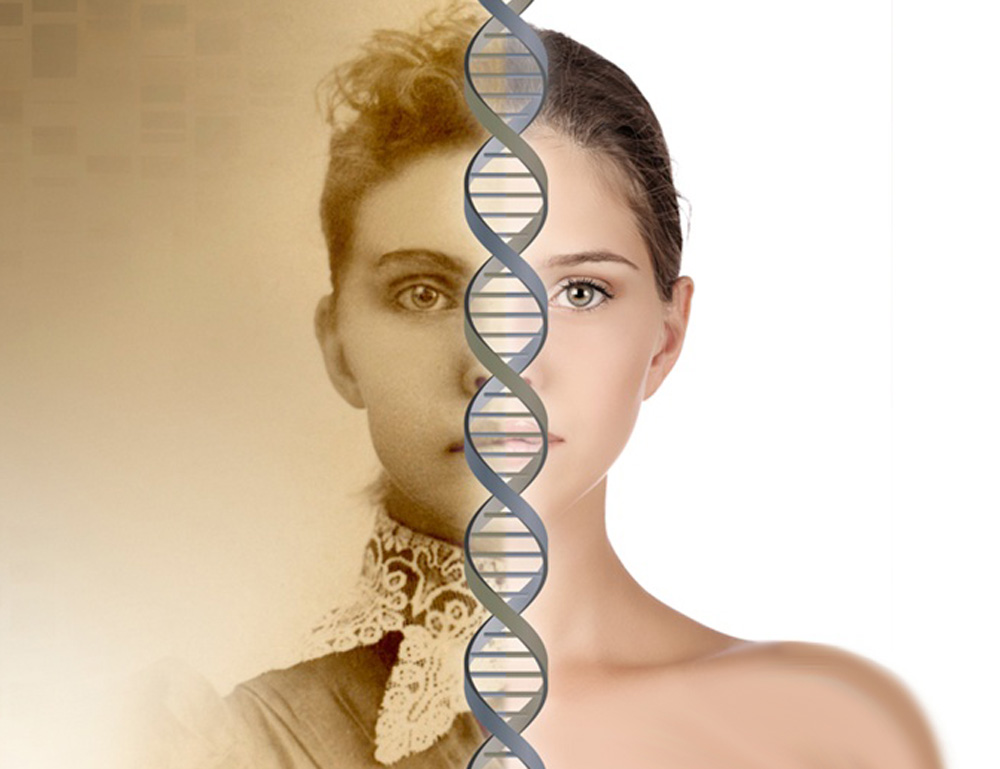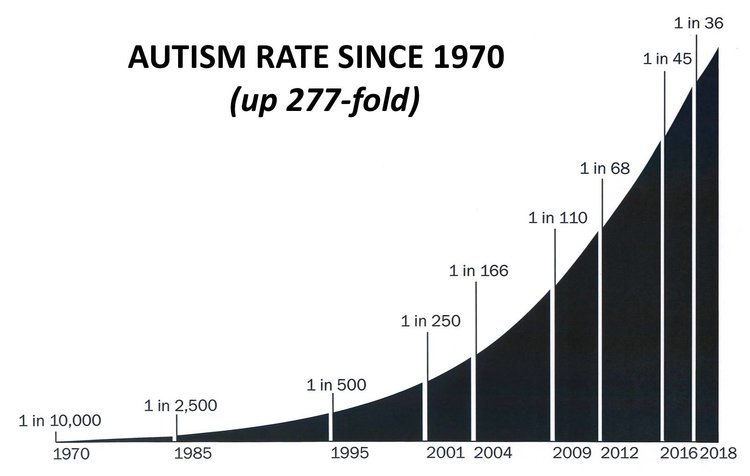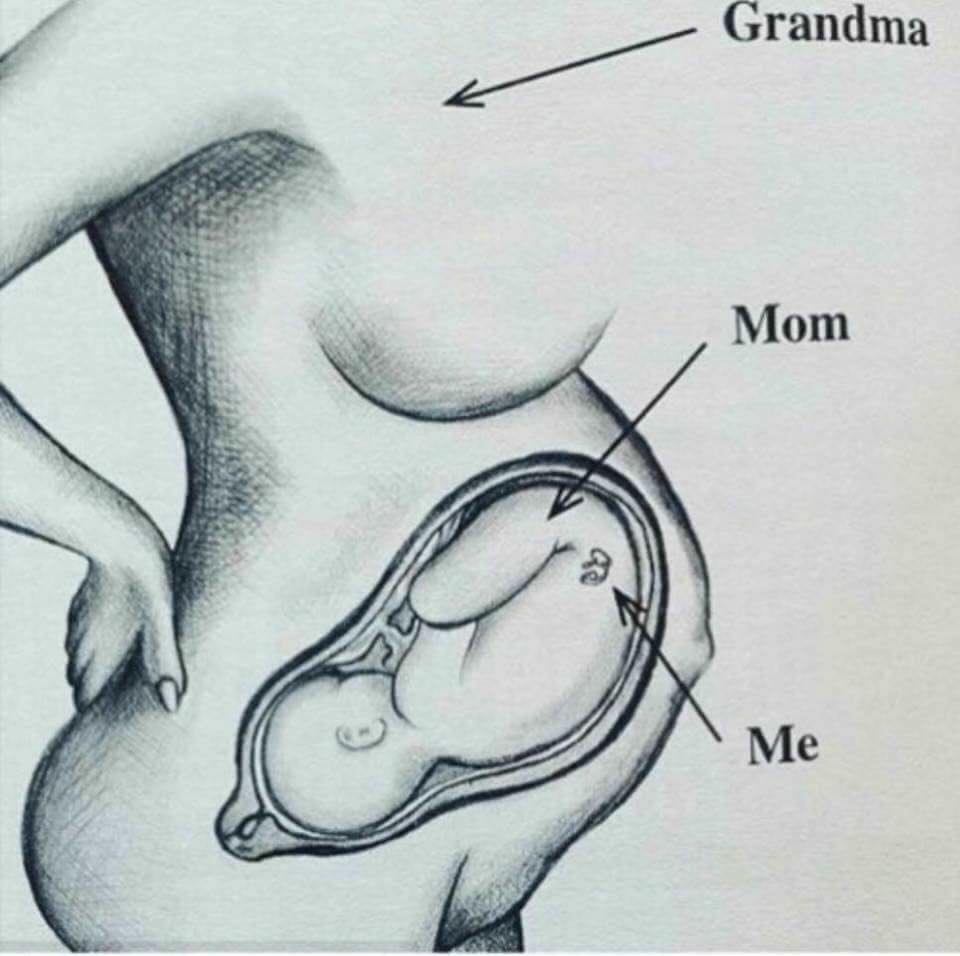Epigentics, Toxins and Autism Increase

Autism genetic? If autism was purely a genetic problem then the numbers should be 1 in 100 from here until the dawn of time. The autistic should be part of our culture, the stories we tell, the very fabric of our society. But they’re not. Instead we have stories about the tidal wave of adults with autism we can expect in the next few years and how poorly prepared we are for them. Nobody saw this problem until it was first described in the 1940s. From that time it’s gone from 1 in 10,000 to 1 in 100.

With that rate of increase, can it be long until it goes to 1 in 10? We need to find answers.
Contrary to the common thought, its NOT JUST the vaccines. Non-vaccinated children can get Autism because Autism is neurological damage, and there are various ways to inflict brain damage on children. (Learn More about Brain Damage and Autism: Read Vaccines Don’t Cause Autism)
Saying that, vaccines cause the most brain damage by far. Heavy metal and toxin exposure in the womb can also trigger Autism, even without vaccines. Fluoride in our water bonds with metal ions like aluminum from vaccines in our blood, ushers it across the blood brain barrier and deposits it in our neurons. Once there, the neurotoxic fluoroaluminate complex destroys the neuron. Yes, there are many synergistic effects between the contents of vaccines and other toxins in the environment. Fluoride gets into our blood from drinking and bathing water, food, pharmaceutical drugs, dental products and procedures, industrial air pollution , etc. Americans are receiving too much fluoride and the visible sign is the dental fluorosis in 41% of adolescents. And that’s just one toxin. The thing about vaccines is that the toxins are injected which makes them far more damaging. Vaccination and fluoridation programs are something we can stop. We can stop deliberately poisoning ourselves. 2

(For one example, if the mother has a mouth full of mercury fillings, that mercury can be passed on to the baby in the womb, thus harming the baby’s brain before it’s even born). It’s important to remember that every human begins in their maternal grandmother. A female fetus developed her ovaries and the eggs within at 4 months development within the womb.
Epigenetics: The Science of Change
Derived from the Greek, the word epigenetics literally means “above” genetics. Epigenetics is the study of chemical markers that modify genes but are not part of DNA itself. Like DNA, they can be passed on from cell to cell and from one generation to the next. These modifications are superimposed on top of our genes to tell them whether they should be active or inactive. For example, every cell in your body has the same DNA; however, some cells are specialized for use in the heart, the bones, the brain, the nerves, the stomach, etc. These cells become specialized because different sets of genes are turned on or off at different points in cell development, leading to differences in the types and amounts of proteins produced and determining how the cells look, grow, and act. This is epigenetics in action…
Epigenetics is the theory that environmental factors, such as diet, lifestyle choices and pesticides can impact the health of people who are exposed to them and also their descendants. Human DNA, according to epigenetics, is not unchangeable; it can be altered by such environmental factors. Epigenetic changes can be imprinted on the DNA of a fetus during pregnancy according to Winchester.
“If it is fixed then, it becomes inheritable and it becomes a trait that you can pass on to the next generation and the next and next.”
Epigenetics is a fairly new concept that is slowly gaining acceptance.
The accumulated evidence indicates that many genes, diseases, and environmental substances are part of the epigenetics picture. However, the evidence is still far too thin to form a basis for any overarching theories about which substances and which target genes are most likely to mediate adverse effects of the environment on diseases. 1
Environmental Damage
The synthetic Vitamin K shot given to infants at birth can be just as detrimental to newborn development as vaccines are.
Epigentic Studies on rodents show that DNA methylation can be altered by many different kinds of exposures during the fetal as well as the adult life. 3
Epigentic damage carries on for up to 4 generations. So it would take 4 generations of no vaccines to be totally clean genetically.
Research Epigenetics and Toxic Sources
Fluoride : http://www.fluoridealert.org
Vaccines: Toxic effects of injected aluminum, mercury and other heavy metals
Biological effects of 50 Hz ELF-EMF exposure
RESEARCH RESOURCES:
Portions of this article were found as a facebook post by Dayna Willar
1 https://www.ncbi.nlm.nih.gov/pmc/articles/PMC1392256/
2 Linda Martin – Facebook post comment




